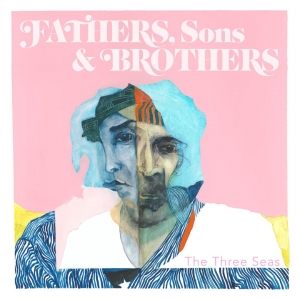
Q: What do you do in life? A: I play guitar.
Q: No, I mean what do you do in life? A: I play effing guitar!
Amyt Datta spat out the above sentences, dripping with disgust and frustration, to hoots and thunderous applause at the nearly packed 1100 seater Kala Mandir Auditorium. The first day of the year saw Kolkata bringing out its dormant love for independent music when so many turned up to see a two hour long set of Ziba, a new brainchild of guitar virtuoso Amyt Datta where folk music from all over the world blends into the eclectic sonic territory of the maestro to create a new identity which is immediately relatable even if it is not recognizable.
It was reminiscent of the ’90s when people used to turn up to sit-down concerts without having any expectations of what music would be played; without booze, food, chit-chat. Datta remembered the days when he and late percussion guru Monojit Datta played at the same venue to a packed house as D for Brother.
The impactful energy emanated from the first note stayed same throughout the show. Loud and blaring African rhythms conveyed the first song - Oumou Sangare’s ‘Moussolou’ and Santhali Manbhoomi folk song ‘Shaaltole Bela Dubilo’ - to the crowd, Arko Mukhaerjee’s voice hitting sweet spots as he twirled around, his mane like hair following. Mystique moods were created over booming double stops on the bass as a Jamaican song ‘Sheriff’ and the century old Bengali ‘Manush Ekta Koler Gaari’ conjoined on a single soundscape.
A distinct trait of Ziba’s sound is that there are alter egos. One is their treatment of the song, and the other is Datta’s tale incorporating that song. The transitions are breath-taking: a subtle difference and the sound shifts gears to journey through the portal to the other ego, which is mostly dark and dissonant, reeking of turbulent distortion and borderline schizophrenia.
Helmed by Ritoban Das on drums, Deboprotim Bakshi on congas and percussion (both students of Monojit Datta) and Aakash Ganguly on bass, the rhythm section is a groove machine. While the percussionists create the bed of Afro-Cuban, Indian folk and eastern European rhythms, the bass contributes the funky tangent to Datta’s guitar, which rotates among solid rhythm playing, blood-thirsty solos and alter ego mood making. But the pinnacle of their flawless delivery lies in Mukhaerjee’s unearthly vocals, which is in parts shamanic, reaching supersonic pitches while reverberating powerfully.
The distinct worlds of Mali and Bengal – Sangare’s ‘Diaraby Nene’ and 19th century Baul song ‘Kotodine Deen Heener Bhaab’ - were traversed again in one song, without one even realizing the mood shifts; only the language changing. The anguish of the gypsy was also remembered through an eastern European Romani song – Dumbala Dumba by Taraf de Haidouks. Mukhaerjee’s unique usage of the ukulele in such pounding soundscapes set down twinkling riffs and folky essences.
The dreamy rendition of Senegalese artist Baaba Maal’s ‘Cherie’ brought smiles to the audience after the aural heavy content of previous songs. ‘Coleur Café’ was the other soft song in the setlist. ‘Doyal Baba/Ayna’ was given a funk makeover, while some haunting poetry was infused into the Fakiri Sufi song from Sylhet, Bangladesh - ‘Namaaz Amar Hoilo Na Adaay’.
Though the concert officially ended with ‘The Kabir Jam’ – the song with which the band unearthed themselves on the internet (Jamsteady X BlooperHouse Studio Sessions), the audience wanted an encore. So, Mukhaerjee led them into creating a rhythm bed:
‘Clap-Clap ; Clap-Clap-Clap; Clap-Clap-Clap; Clap-Clap’;
On this, the band roared into ‘Allah Megh De’. The pop treatment of the Bengali Bhawaiya folk song was eye-opening and the contrasting shoot off into percussion heavy ‘Gypsy Queen’ was even more so. Mukhaerjee also made the audience croon out the melody line at different pitches.
While reflecting on the concert, the thing that stands out is the mystique and theatricality of Ziba’s aura - world fusion experimental music with controlled doses of chaos and dissonance; a frontman who often raises his hands, as if to God, in the midst of onstage throes, and the audience joins him when he does Baul-like vocal throws for nearly ten seconds; and the white screen behind changing from one monochromatic hue to another while flickering lights and smoke do their bit. All of it together creates an illusion – the illusion of a portal to the other world!
Previous Article Ady Manral New EP is A Drop Of Simplicity In A Complicated Ocean Ady Manral New EP is A Drop Of Simplicity In A Complicated Ocean
|
Next Article Inalab Teams Up With Shubha Mudgal For Fresh New Single Inalab Teams Up With Shubha Mudgal For Fresh New Single
|
The Three Seas, an Indo-Australian project which plays a crossover of Bengali folk (baul) music and jazz, led by Australian saxophonist Matt Keegan, recently released their 2nd album and will be touring in India from the 15th of December.




Leave a comment